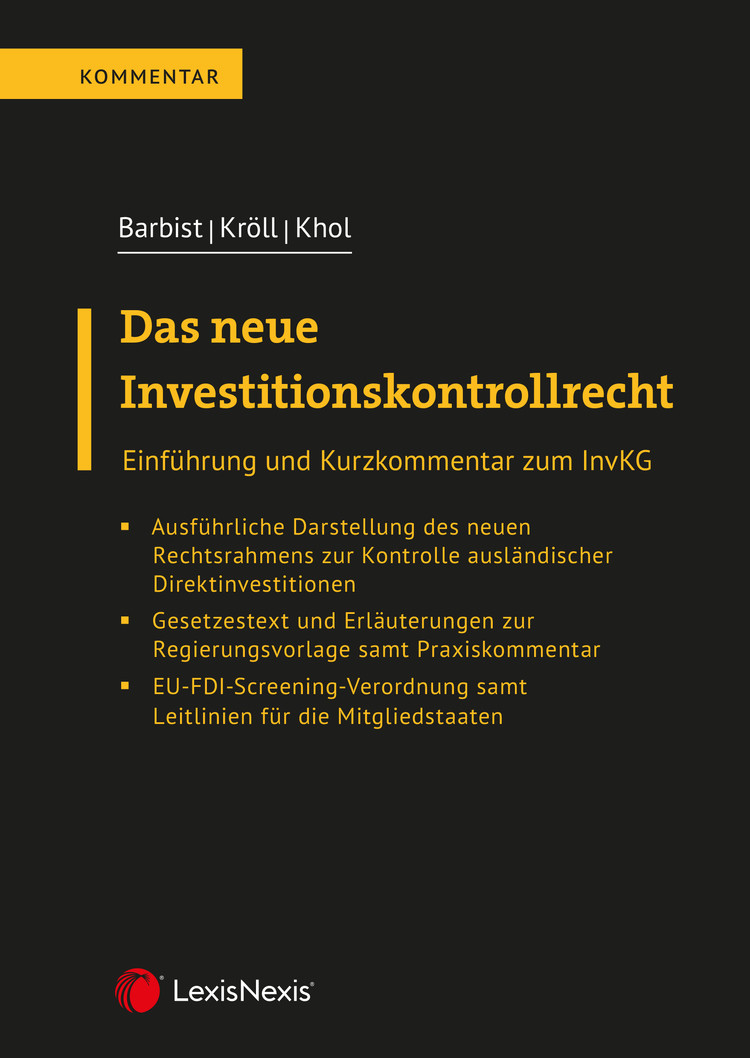On 25 July 2020, the new tighter Austrian investment control regime has come into effect. According to this new regime, transactions are subject to authorization if third-country acquirers - directly or indirectly - acquire voting rights or assets in an Austrian target company that operates in a critical sector. We have already informed you about this in our newsletter.
Over these first weeks we have virtually been flooded with enquiries on the Investment Control Act (Investitionskontrollgesetz - InvKG). A short overview after eight weeks:
- 2 applications for authorization submitted
- 1 clearance received
- 1 authorization procedure pending
- 1 further application for authorization in preparation
- 4 cases where an application is being considered
- 3 transactions in which an application requirement was not deemed necessary.
Apart from these bare figures, a first assessment comes to a somehow mixed result. An overview of the legal issues we are facing:
- Third-country acquirer: The law defines the term "foreign person" but does not capture future developments (e.g. Brexit). However, M&A transactions often have a longer start-up phase; advisers would like to know whether a UK company is considered a third country acquirer as of 1 January 2021. There is also a debate where the acquirer is located on a Channel Island (e.g. Jersey).
- Covered sectors: The Annex to the InvKG (catalogue of critical sectors where a threat to security or public order may arise) is extremely broad. In practice, there is therefore considerable legal uncertainty as to when an application for authorization is required.
- De-minimis threshold: The acquisition of micro-enterprises does not ex lege require an authorization. However, it is unclear how the number of employees and financial indicators are to be calculated, especially if the Austrian target company belongs to a group.
- Different positions of the contracting parties: The sell-side sometimes sees the InvKG as a mere obstacle to a swift closing, especially if there is no other reason to wait (e.g. no merger control proceedings required). By contrast, the third-country acquirers fear the sanctions and want transaction security.
- Unclear transitional provisions: The transition between the old Foreign Trade Act 2011 (Außenwirtschaftsgesetz 2011) and the InvKG was not harmonious. There is no clear regulation as to which FDI regime should be applied to a transaction. In practice, the day of the conclusion of the transaction contract (signing) is deemed decisive. This does not provide legal certainty, but if the competent authority (Federal Minister for Digital and Economic Affairs - BMDW) sees it that way...
The competent department at the BMDW tries to provide orientation. But the BMDW cannot work miracles either - too many questions are still open.
A bit of self-promotion to conclude
On Thursday, September 24, 2020 Johannes Barbist will host a webinar on the new Investment Control Act in cooperation with the University of Innsbruck. For more information please click here.
Our Binder Grösswang attorneys Johannes Barbist, Regina Kröll and Florian Khol published the short commentary "The new Investment Control Act" in record time. It has been available since two weeks.

